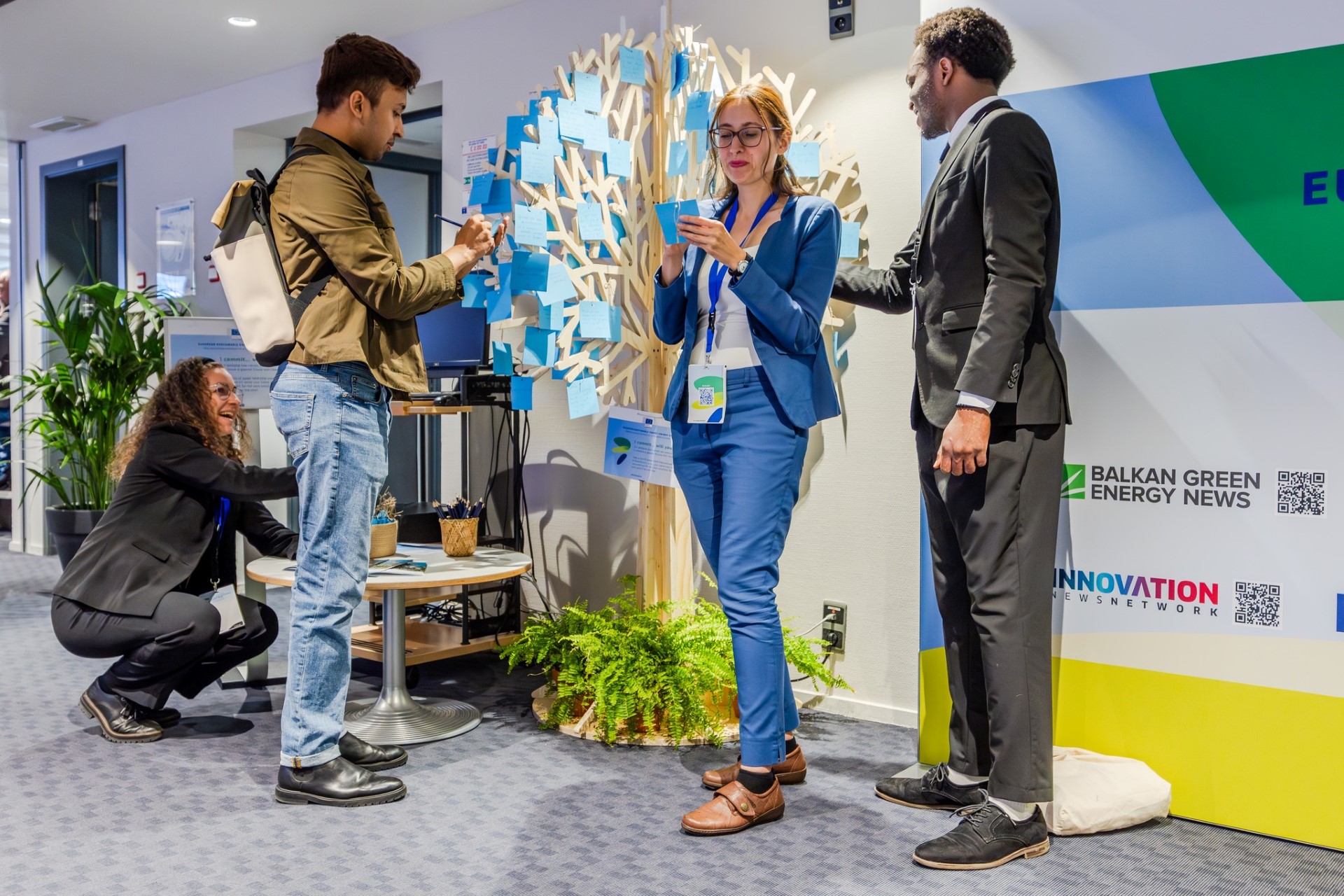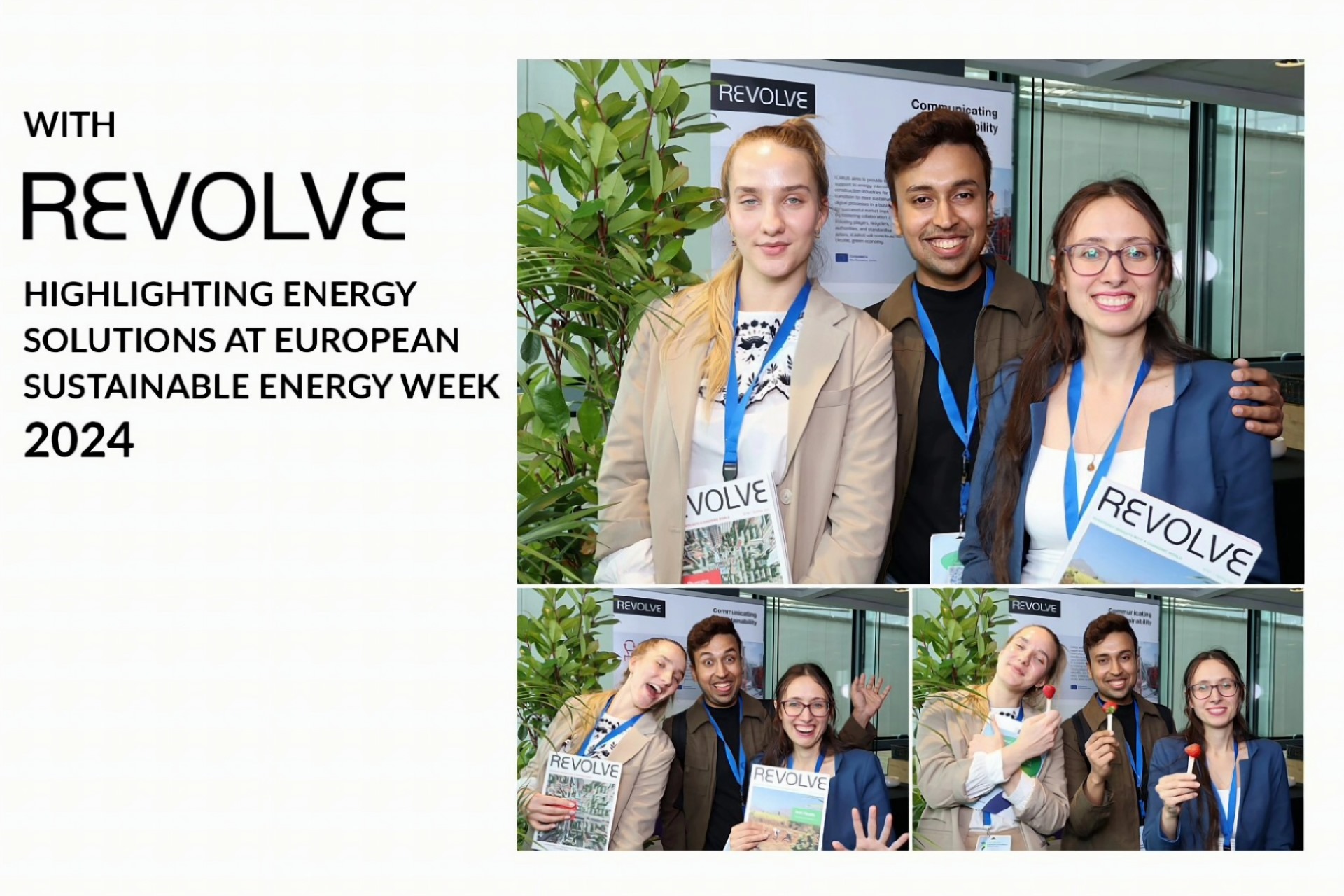Rethinking Energy Transformation
A holistic perspective on energy transformation reveals the need for societal engagement alongside technical solutions.
When we think of energy transformation, the first associations that come to mind are renewable energy sources, reducing CO2 emissions, energy efficiency, and decarbonization—all technical solutions. For each diagnosed problem, there is a clear remedy. However, the crisis we face is far more complex and it affects multiple areas and requires deeper work in various aspects of society, not just immediate solutions.
As a Youth Energy Ambassador for the European Sustainable Energy Week (EUSEW), I’ve gained a new perspective on energy transformation. The Youth Energy Ambassadors come from diverse backgrounds and roles, which in itself shows how multifaceted the work on energy transformation is. Thanks to this role, I’ve had the opportunity to attend extraordinary events, such as the European Sustainable Energy Week 2024, where I had the chance to participate in the Closing Session in Brussels and discuss the European Green Deal with Maroš Šefčovič on stage. This journey has been filled with rich and thought-provoking discussions and incredible insights into how complex the energy transformation process truly is.
We need to decarbonize the economy, which means we must find the right technologies to achieve this goal.
In my research, I focus on the thermo-ecological assessment of multigeneration systems based on renewable energy sources. Naturally, conversations about energy technologies and solutions have always been close to my heart. We have a clear issue—we need to decarbonize the economy, which means we must find the right technologies to achieve this goal.
The solutions lie in renewable energy sources, energy storage systems, and smart grids, among others. Problem—solution. I still believe that this is a crucial matter, but there are equally important aspects beyond that. My work experiences, where I help local governments develop energy and climate strategies, especially urban climate adaptation plans, have taught me that.

A large part of my job involves meetings and workshops with stakeholders. Education and awareness play a key role in making any strategy effective and without the engagement and increased awareness of people, even the best technology might be ineffective or face social resistance, and we definitely do not want the green transformation to deepen divisions or create a sense of injustice.
The transformation also varies across different geographical regions. For some societies, change is easier, perhaps due to favorable conditions for renewable energy, civic engagement supporting change, or high trust in authorities. However, in other regions, the transformation is much more challenging. Economic issues, such as job losses in coal mining sectors, can emerge. Relying on renewable energy may not be as easy or profitable and some communities also face identity challenges, where their culture is tied to industries such as mining.
Education and awareness play a key role in making any strategy effective and without the engagement and increased awareness of people, even the best technology might be ineffective or face social resistance.
Additionally, many regions lack the economic or social potential to implement deep changes. As a result, solutions that work in one place may not necessarily work in others. Even though we’ve made significant progress in understanding the technology component, or at least invested heavily in doing so, this technology must stand on two stable foundations—society and the environment.
Tapping into and activating social potential for energy transformation is essential. One of the key terms we should associate with this concept is sustainable development. The effort and resources directed toward technology development should be matched equally with social and environmental initiatives. Without a shift in society’s mindset and actions, we’ll remain in the same place, only with better technology. I actively collaborate with a local NGO and see the potential and willingness to act.
Often, there is simply a lack of knowledge needed for people to make decisions that support the energy transition and environmental protection. Perversely speaking, when we think about smart cities or smart grids, the most important ‘smart’ element should be people.
Perversely speaking, when we think about smart cities or smart grids, the most important ‘smart’ element should be people.
I’m particularly encouraged by how often words like ‘education’, ‘society’, and ‘environment’ came up in discussions with Youth Energy Ambassadors about the recommendations that will be shared with the incoming European Energy Commissioner. It was an incredible experience to hear the stories of other Youth Energy Ambassadors and learn about their work.
We operate in different parts of Europe and support the energy transformation in various ways. For me, this experience represents rethinking the multidimensionality of change and recognizing the importance of addressing social and environmental issues in this process.
